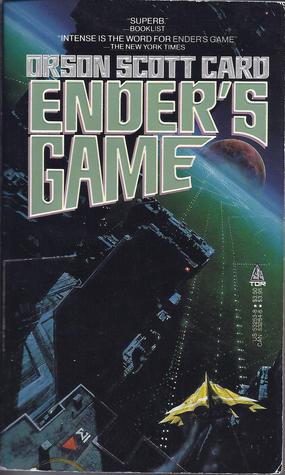Reviewed by angelarenea9 on
I think it's important to mention that before I read this book I saw the movie adaptation and absolutely loved it; so naturally, when I heard it was a book series first I jumped on them! I never read much science fiction before, but recently I've sort of been breaking through the mental block and exploring some, and I'm really glad I did for this book.
I thought that the idea for this book was a really interesting one. I wasn't sure if the children were somehow genetically different than the other children or if Orson Scott Card just wrote them a little older than their ages. I thought that the game, both the simulation and the battle game, was really interesting and I enjoyed reading about it.
I thought that Peter was a very frustrating character because all that we saw was a jealous and angry young boy, and I would be interested to see what made him the way that he was. I though that it was really interesting how when he and Valentine were writing, he got her to help him write the more humanitarian views, almost like he was trying to force her to teach him to be better. Or maybe that is just me wanting him not to be not all bad.
I felt terrible for Ender the whole way through the story, because he was thrust into situations far outside the range of emotional stress anyone, particularly a child, should be expected to endure. I think that Graff was a terrible man for making Ender believe it was all a game, knowing that he would live with the stigma forever, even if others treated it like a badge of honor. In my opinion, if he wanted to kill the Buggers, he should have done it himself.
I think that this was a really great novel that, while it's childish humor (what little there is) and language may appeal to younger readers, the heavy, somewhat dark plot, and almost philosophical feel to the story has something to offer readers of all ages!
Reading updates
- Started reading
- 12 May, 2014: Finished reading
- 12 May, 2014: Reviewed
